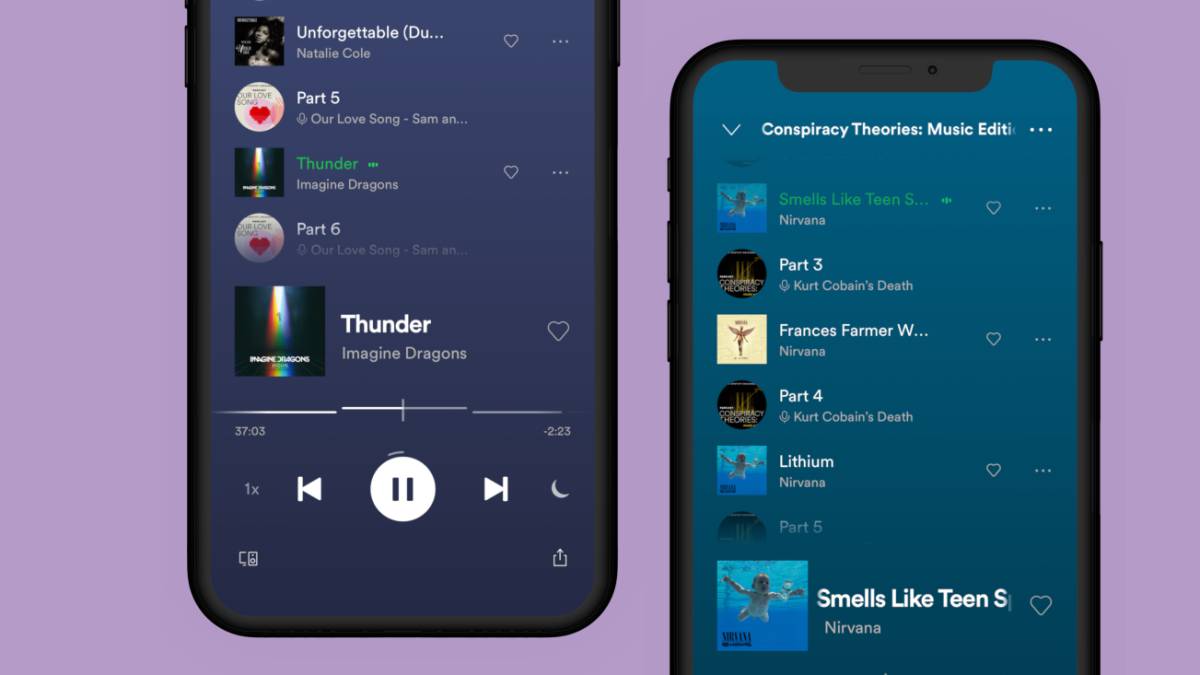


That one involved melodies and harmonies and the other primarily the spoken word (although there are plenty of music podcasts) is, from a technical perspective, a distinction without meaning.įrom a value chain perspective, though, music and podcasts could not be more different: And, at least from a user perspective, it is a natural extension: playing music and playing podcasts entail downloading or streaming some sort of digital file, decoding it on a device, and playing it back through some sort of speaker. The shift in purpose from “music” to “audio” is, for now anyways, about podcasts. Basically, the more revenue Spotify makes the more its costs increase, which can be overcome at large enough revenue numbers - see last quarter - but limits the company’s long-term upside.Īt least, that is, as long as Spotify was a music company thus the new declaration from Ek that Spotify is now about audio - the honesty was his admission that he didn’t originally see this coming.
Spotify podcaster driver#
The issue, as I laid out last year in Lessons From Spotify, is that Spotify’s primary cost driver is not, like most tech companies, fixed investments in R&D or Sales & Marketing, but rather marginal payouts to record labels. To be fair, Spotify said it would have made a small profit even without that adjustment, but the long-term outlook is tough when the company’s gross profit is, as it was last quarter, only 27%. The company did make its first operating profit of last quarter on revenues of €1.5 billion, but the biggest driver was the fact its operating costs were down 17% due to lower “accrued social costs” in Sweden that resulted from Spotify’s stock price going down. The problem for Spotify is that the company’s financial returns are not nearly representative of its impact on the music industry.
Spotify podcaster free#
What happened is that Spotify dragged the record labels into a completely new business model that relied on Internet assumptions, instead of fighting them: if duplicating and distributing digital media is free (on a marginal basis), don’t try to make it scarce, but instead make it abundant and charge for the convenience of accessing just about all of it. First and foremost, Ek is absolutely justified in taking a victory lap: as I noted last month music revenue is growing sharply over the next few years the industry’s total revenue will likely exceed the peak of the CD era, something that seemed unthinkable a decade ago.

There is a lot packed into this paragraph. I’m proud of what we’ve accomplished, but what I didn’t know when we launched to consumers in 2008 was that audio - not just music - would be the future of Spotify. Along the way, we broke the grip piracy had on our industry and restored the growth of global music through paid on-demand streaming. More than 10 years ago we founded Spotify to give consumers something they couldn’t get - music any time, anywhere, and at the right price. Credit Spotify CEO Daniel Ek with honesty in a blog post announcing a major move into the podcast space, Ek wrote:


 0 kommentar(er)
0 kommentar(er)
